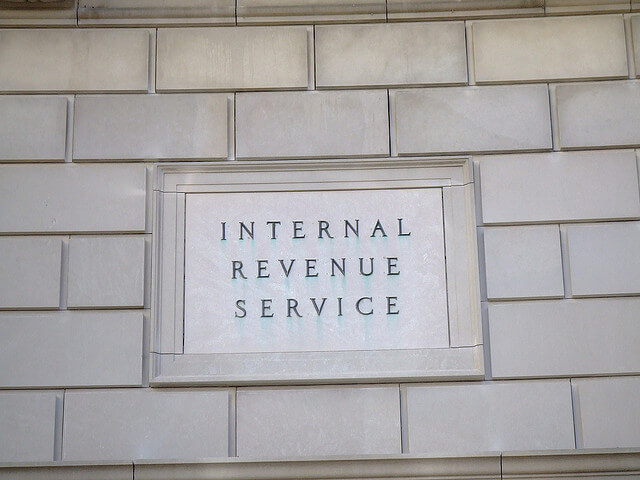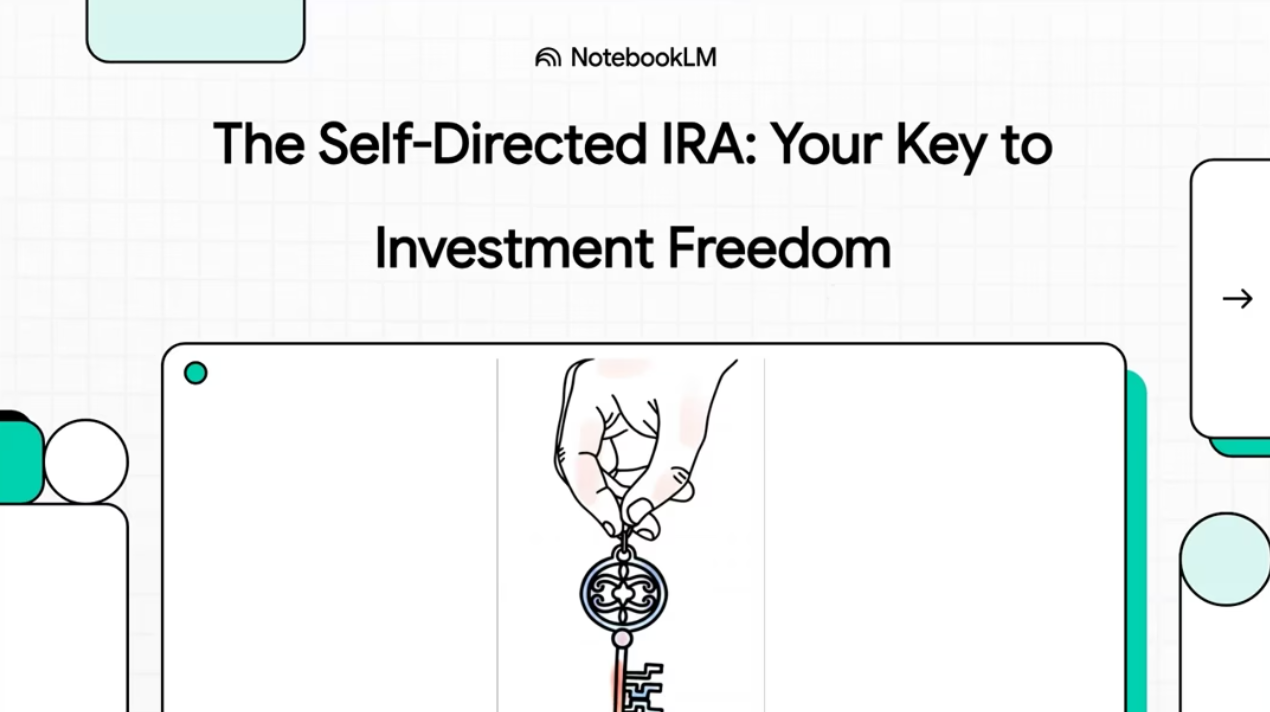Steering Clear of Prohibited Transactions in a Self-Directed IRA [CHECKLIST]

Looking to diversify your investment holdings? Consider a self-directed IRA.

Self-directed IRAs and 401(k)’s can include atypical investments, such as real estate, private placements, trust deeds, and even gold and silver coins. If you are considering a self-directed IRA plan, however, you should be aware that the IRS has a set of stringent rules governing how self-directed IRAs must be managed. If you don’t comply with these regulations, you could face stiff penalties and fines as well as the loss of tax sheltered status on the entire IRA value. Rest assured… the rules are easy to follow if you know what they are.
The key principal to keep in mind is that investments of an IRA or 401(k) must be exclusively for the benefit of the plan, and there may be no direct or indirect benefit between a plan and a disqualified party. Your only benefit is the tax-sheltering of the income received by the IRA, and your ability to save a larger amount for distribution in your retirement years – after age 59 ½.
Disqualified parties are banned from doing any business or engaging in financial transactions with the self-directed IRA. This is to avoid conflict of interest, and to ensure that the sole purpose of the IRA is indeed to safeguard and grow a retirement fund.
Disqualified parties include:
The Account Holder, their spouse, and lineal family. This includes the individual who owns the IRA, i.e. the account holder, and his or her spouse and children. Lineal family such as parents, grandparents, children, grandchildren and the spouse of a descendant are also included in this category of disqualified parties.
Siblings, aunts, uncles, and other family members are generally not disqualified. However, there may be other issues that could come into play when dealing with family members. For instance, if brother holds a rental property for which you hold a mortgage with your IRA, there can be trouble if your brother cannot pay the note. Your IRA would have to foreclose, just as it would with any other borrower, or you could be looked at as having engaged in a prohibited transaction.
Plan Fiduciaries. Any person who manages the IRA account is disqualified. This also includes agents who have been hired to give financial advice or guidance to the IRA account holder such as a CPA or financial planner.
Business Entities & Trusts. Any entity (business, corporation, or trust) that is owned or controlled by a disqualified party. Ownership would be more than 49% equity by one or more disqualified parties. Control would be executive decision making power such as a director or trustee of an entity might have.
Key Employees of A Family Business
If you or disqualified parties own a business, a senior employee of that business such as a vice president or CFO would be considered a disqualified party.
Keep the list of disqualified persons front and center.
Direct Prohibited Transactions. The following examples should give you some insight on prohibited investments.
- A father sells his son a piece of property that is owned by his IRA.
- A woman leases real estate owned by her IRA to her father.
- A man lends his wife money from his IRA.
- A man lends his mother money from his IRA so that she can start a business.
- A woman buys a home with her IRA funds and lives in it herself.
- A woman owns an apartment with her IRA and hires her father for repairs.
- Lending money to your CPA
Indirect Prohibited Transactions
A transaction is still viewed as self-dealing, and therefore prohibited, if an intermediary sits between the plan and a disqualified party. Having an unrelated party purchase a house out of your parent’s estate, then purchasing from that person with your IRA would be an example of such an indirect transaction. Lending to an ex-spouse, if your minor child was living with them would also be a problem.
Property Management
One must take care when self-managing a rental property owned by their IRA or 401(k). IRS rules prohibit conveyance of benefit by a disqualified party to the plan through the provision of goods or services. The IRA account holder is allowed to administer plan investments, so things like signing contracts, paying the bills and collecting rents are OK. It would not be OK to perform repairs on an IRA owned property, however, since this provision of free labor would be the equivalent of making un-documented contributions to the IRA.
Acting as Realtor for your Plan
The IRS does not offer specific guidance on this topic, but our attorneys caution against acting as Realtor for the purchase or sale of IRA or 401(k) owned properties. Someone who is not a Realtor could execute such a transaction, as they are simply acquiring and disposing of plan assets. As a Realtor, however, one would be bringing to the table their licensing, E&O insurance, etc., and could therefore be viewed as providing services to the plan that another investor would pay for.
Prohibited Investments
IRA plans may not invest in life insurance or collectibles. A 401(k) may invest in certain life insurance contracts, but is likewise prohibited from investing in collectibles.
Items deemed collectibles would include artwork, metals, gems, alcoholic beverages, rugs, antiques, stamps, and most coins.
There are exceptions to the collectibles exclusion that allow for certain pure forms of precious metals holdings in an IRA, including:
- US minted coins of 99.99% purity – Gold, Silver and Platinum Eagles
- Foreign coins of 99.99% purity
- Pure bullion items in gold, silver, platinum & palladium, including bars and un-minted rounds.
With a self-directed IRA LLC or Solo 401(k), you can only hold the US Eagle coins. All other precious metals items must be held by an institutional IRA trustee.
In general, self-directed IRA accounts allow for a greater degree of investment flexibility and unique investment options. In order to pursue this flexibility with the confidence you need to succeed – and stay out of trouble with the IRS – you should establish your self-directed IRA with a professional team that focuses on client education and provides high quality ongoing support.

What our clients says about us
Quick answers to common questions
We’ll take you through a simple, step by step process designed to put your investment future into your own hands…immediately. Everything is handled on a turn-key basis. You take 100% control of your Retirement funds legally and without a taxable distribution.
YES! In 1974, Congress passed the Employee Retirement Income Security Act (ERISA) making IRA, 401(k) and other retirement plans possible. Only two types of investments are excluded under ERISA and IRS Codes: Life Insurance Contracts and Collectibles (art, jewelry, etc.). Everything else is fair game. IRS CodeSec. 401 IRC 408(a) (3)
It’s actually pretty simple. Early on, regulators let the securities industry take the lead in educating the public about retirement accounts. Naturally, brokers and banks promoted stocks, bonds, and mutual funds—giving the impression that those were the only allowed investments. That was never true... and still isn’t. You can probably guess why they kept the rest under wraps.
It is possible to use funds from most types of retirement accounts:
- Traditional IRA
- Roth IRA
- SEP IRA
- SIMPLE IRA
- Keogh
- 401(k)
- 403(b)
- Profit Sharing Plans
- Qualified Annuities
- Money Purchase Plans
- and many more.
It must be noted that most employer sponsored plans such as a 401(k) will not allow you to roll youraccount into a new Self-Directed IRA plan while you are still employed. However, some employers will allow you to roll a portion of your funds. The only way to be completely sure whether your funds are eligible for a rollover is by contacting your current 401(k) provider.
A Solo 401(k) requires a sponsoring employer in the format of an owner-only business. If you have a for-profit business activity – whether as your main income or as a side venture – and have no full-time employees other than potentially your spouse, your business may qualify. The business may be a sole-proprietorship, LLC, corporation or other entity type.
A self-directed retirement plan is a type of IRA or 401(k) that gives you greater control over how your retirement funds are invested. Unlike traditional accounts held at banks or brokerage firms that limit you to stocks, bonds, and mutual funds, self-directed plans allow you to invest in a wide range of alternative assets including real estate, private businesses, precious metals, cryptocurrency, and more.
These plans still follow the same IRS rules and maintain the same tax-deferred or tax-free benefits as conventional retirement accounts. The difference is simply in how and where you choose to invest.
No. Moving to a self-directed IRA or Solo 401(k) does not trigger any taxes, as long as your funds are eligible for rollover.
Self-directed retirement plans maintain the same tax-advantaged status as traditional plans offered by banks or brokerage firms. The key difference is flexibility—our plans are designed to give you greater control and allow for a wider range of alternative investments beyond stocks, bonds, and mutual funds.
A prohibited transaction is any action between your retirement plan and a disqualified person that violates IRS rules and can lead to serious tax consequences. Under IRS Code 4975(c)(1), prohibited transactions include:
- Selling or leasing property between your plan and a disqualified person Example: Your IRA cannot purchase a property you already own.
- Lending money or extending credit between the plan and a disqualified person Example: You cannot personally guarantee a loan your IRA uses to buy real estate.
- Providing goods or services between your plan and a disqualified person Example: You can’t use your personal furniture to furnish a rental property owned by your IRA.
- Using plan income or assets for the benefit of a disqualified person Example: Your IRA cannot buy a vacation home that you or your family use.
- Self-dealing by a fiduciary (using plan assets for their own benefit) Example: Your CPA shouldn't loan your IRA money if they’re advising the plan.
- Receiving personal benefit from a deal involving your IRA's assets Example: You can’t pay yourself from profits your IRA earns on a rental.
If a transaction doesn’t clearly fall within the allowed guidelines, the IRS or Department of Labor may review the situation to determine if it qualifies as a prohibited transaction.
Disqualified persons are individuals or entities that are prohibited from engaging in certain transactions with your IRA or 401(k). Doing so could trigger a prohibited transaction, which may result in taxes and penalties.
Here’s who is considered a disqualified person:
- You (the account holder)
- Your spouse
- Your parents, grandparents, and other ancestors
- Your children, grandchildren, and their spouses
- Any advisor or fiduciary to the plan
- Any business or entity owned 50% or more by you or another disqualified person, or where you have decision-making authority
These rules exist to prevent self-dealing and ensure your retirement plan remains in compliance with IRS regulations.
(Reference: IRC 4975)
Understanding and following these rules can be tricky, but it’s very doable. The best way to stay compliant is to work with professionals who specialize in self-directed retirement plans. They can help you navigate IRS guidelines and avoid prohibited transactions.
If an IRA holder is found to have engaged in a prohibited transaction with IRA funds, it will result in a distribution of the IRA. The taxes and penalties are severe and are applicable to all of the IRA’s assets on the first day of the year in which the prohibited transaction occurred.
Yes. While self-directed retirement plans allow for a wide range of investments, there are a few important restrictions.
You cannot invest in collectibles or life insurance contracts, and you must avoid prohibited transactions—activities that benefit you personally rather than the retirement plan. These include things like buying or selling property to yourself or family members, using plan assets for personal gain, or self-dealing in any way.
Violating these rules could cause your entire IRA to lose its tax-advantaged status. To protect your account, it’s essential to work with professionals who understand IRS regulations and can help you stay compliant.
This is a common misconception. In many cases, professionals may simply be unfamiliar with self-directed retirement plans, as they fall outside their usual scope of work. CPAs and tax preparers are trained to file taxes, not necessarily to advise on alternative retirement strategies. Financial advisors and brokers often work for firms that focus on traditional investments like stocks and mutual funds—and may not benefit from or support alternative options like real estate or private lending.
Self-directed retirement investing is legal under IRS rules—but like any specialized area, it requires working with professionals who understand how it works.
The IRS has rules in place to make sure your IRA is used only for the exclusive benefit of the retirement account—not for personal gain or to help family members. These rules can get complicated because there are many ways a conflict of interest can occur, even unintentionally.
For example, if your IRA buys a house and rents it to your mother, you might be reluctant to evict her if she stops paying rent. That emotional connection creates a conflict between what’s best for your IRA and your personal relationships, something the IRS aims to prevent.
These rules help ensure your retirement account stays compliant and protected. (See IRC 408)
Yes. Most tax-deferred retirement accounts—such as Traditional IRAs, old 401(k)s, 403(b)s, and TSPs—can be rolled over into a self-directed IRA or Solo 401(k), depending on your eligibility. Roth IRAs cannot be rolled into these accounts.
You can contribute directly from earned income, subject to annual IRS contribution limits. The method and amount depend on the type of plan you have (e.g., Solo 401(k) vs. IRA).
To take a distribution, you'll request funds through your custodian or plan administrator. Distributions may be taxable depending on your account type and age. Early withdrawals may be subject to penalties.
For 2025, the Solo 401(k) max contribution limit is $81,250 if age 60-63, $77,500 if age 50-59 or 69+, and $70,000 if under 50. Traditional and Roth IRAs have a limit of $7,000 ($8,000 if age 50+). Limits are subject to IRS adjustments.
Yes. IRA contributions are typically due by your personal tax filing deadline (e.g., April 15). Solo 401(k) contributions follow your business tax filing deadline, including extensions.
IRS reporting requirements vary depending on the type of self-directed retirement plan you have. Here’s a quick breakdown of what you need to know
Please note: Our team can help you understand what’s required for your specific account, but we don’t provide tax or legal advice. We always recommend working with a qualified tax professional to ensure full IRS compliance.
Self-Directed IRA (Traditional or Roth)
- Form 5498 – Filed by your custodian each year to report contributions, rollovers, and the fair market value (FMV) of your account.
- Form 1099-R – Issued if you take a distribution or move funds out of your IRA.
- Annual Valuation – You'll need to provide updated FMV for any alternative assets held in the account, such as real estate or private placements.
Solo 401(k)
- Form 5500-EZ – Required if your plan assets exceed $250,000 as of year-end. Must be filed annually by the plan participant.
- Form 1099-R – Required if you take a distribution or roll funds out of the plan.
- Contribution Tracking – Keep records of employee and employer contributions. These are not filed with the IRS but may be needed for tax reporting or audits.
SEP IRA
- Form 5498 – Filed by your custodian to report contributions and FMV.
- Form 1099-R – Filed by your custodian. Issued for any distributions.
- Employer Contributions – Must be reported on your business tax return (and on employee W-2s, if applicable).
Health Savings Account (HSA)
- Form 5498-SA – Filed by your HSA custodian to report contributions.
- Form 1099-SA – Filed by your HAS custodian. Issued for any distributions.
- Form 8889 – Must be included with your personal tax return to report contributions, distributions, and how funds were used.







